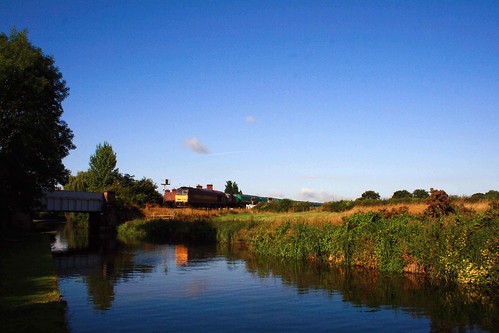
Anti-terror officers are investigating the theft of a cargo of munitions from a freight train.
Ten packages containing what are reported to be anti-tank mines used by British troops in Afghanistan were believed to have been stolen while the train stopped in Warrington, Cheshire.
The North West Counter Terrorism Unit (NWCTU) say it does not believe at this stage the theft was terror-related. The Ministry of Defence-owned munitions do not pose a risk to the public unless they are tampered with, added the NWCTU.
Three of the packages, each with four separate plastic cases inside, remain outstanding after the other seven were found discarded near a railway line in the Folley Lane area of Warrrington.
The train left Longtown, Cumbria, at 11.30am on Wednesday and arrived at Didcot, Oxfordshire, where they were reported missing the next morning.
Officers are now appealing to anyone who may have seen the outstanding items to contact police. They are described as being rectangular plastic tubes, approximately 4ft (1.2 metres) in length. A co-ordinated investigation led by the NWCTU also includes the Metropolitan Police Service, British Transport Police and the MoD.
Assistant Chief Constable Terry Sweeney, from the NWCTU, said: "A number of inquiries are now being made by police officers into this theft and our main priority is to safely recover the missing items. At this stage there is nothing to suggest the theft is terrorist-related but due to the potential complexity of the investigation our inquiries are being led by counter terrorism officers.
"We would like to appeal to any members of the public who may know the whereabouts of these items, or any persons involved in the theft of these items, to contact the police immediately.
"I want to make it clear that in their normal condition these munitions are stable and do not pose a risk to the public. However, the materials could be hazardous if they were to be tampered with and we therefore ask that anyone who sees them or knows where they are to call the police as soon as possible."
The Press Association, photo by Phil Grain


































